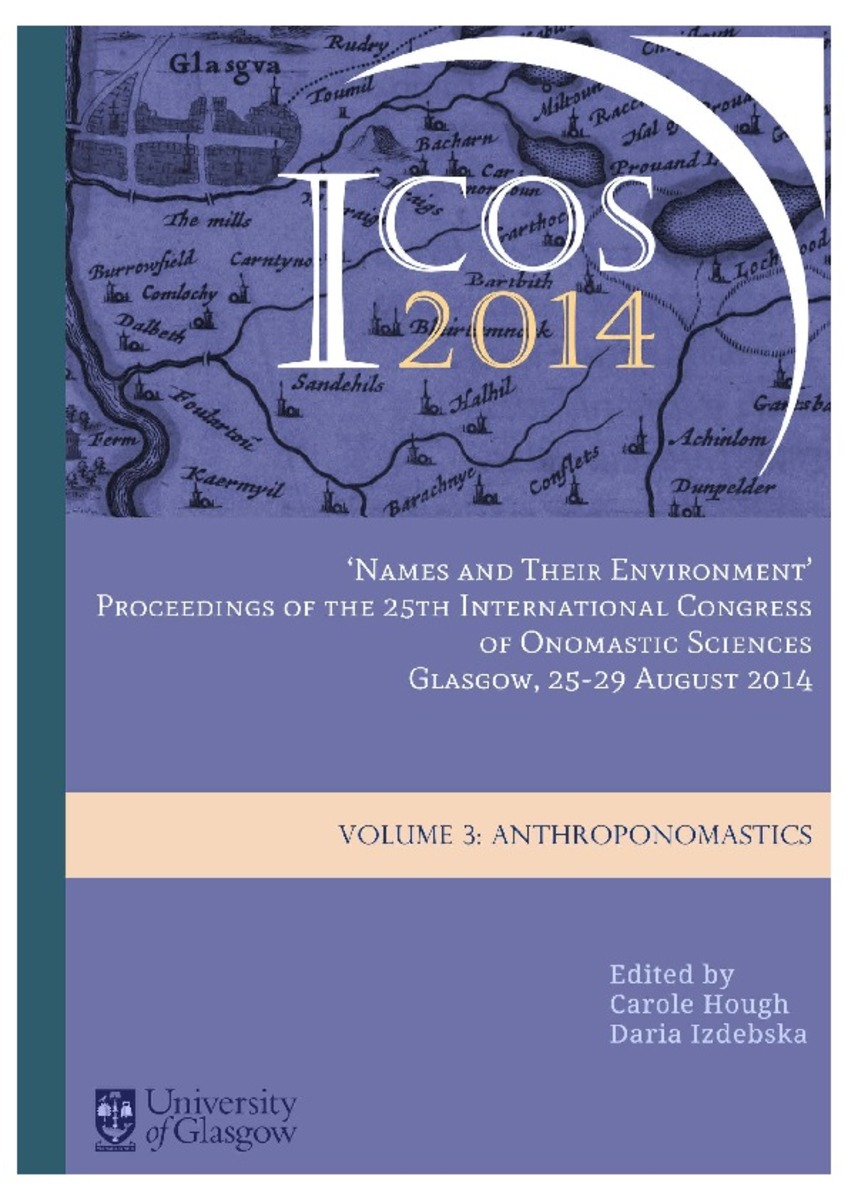One kingdom, Two Languages. Anthroponomastics in Early Modern Navarre
Palabras clave :
Onomástica
Antroponimia
Materias Investigacion::Historia::Historia
Fecha de publicación :
2016
Editorial :
University of Glasgow
Cita:
Zabalza, Ana. One kingdom, Two Languages. Anthroponomastics in Early Modern Navarre. En VV.AA. ""ICOS 2014: Names and their environment"". Glasgow, University of Glasgow: 2014, pags. 279-288.
Aparece en las colecciones:
Estadísticas e impacto
0 citas en

0 citas en

Los ítems de Dadun están protegidos por copyright, con todos los derechos reservados, a menos que se indique lo contrario.











